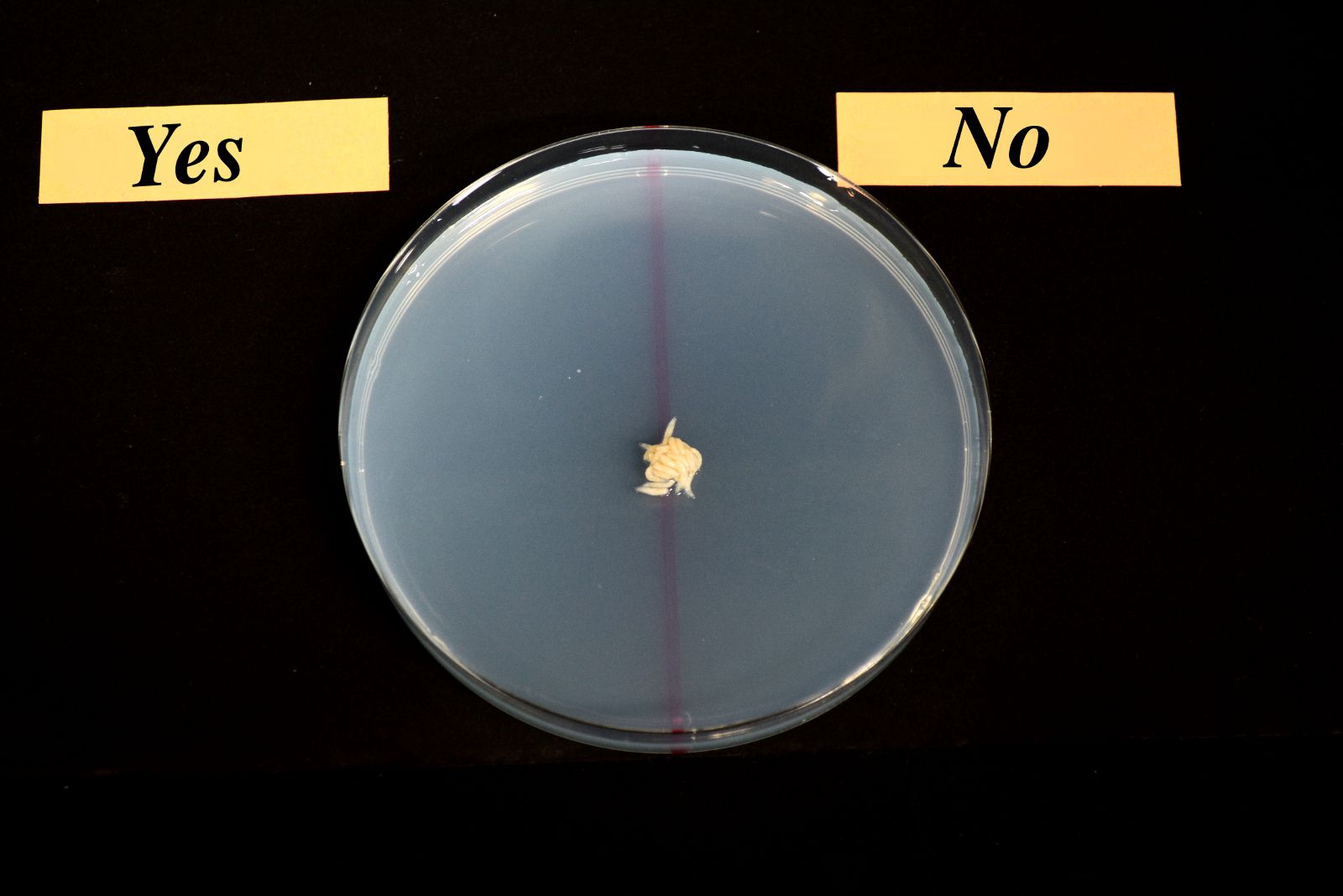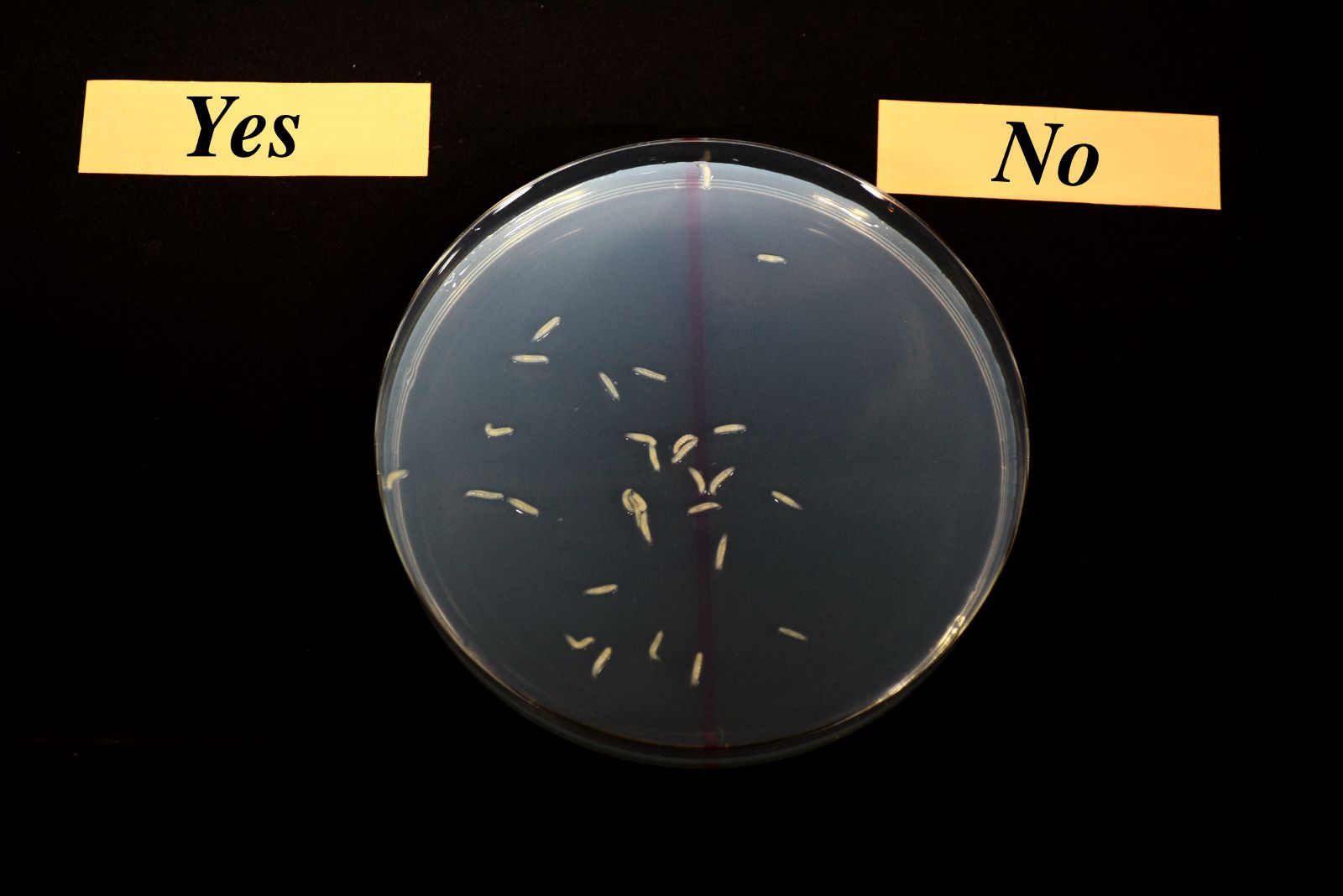Team:KIT-Kyoto/Project
From 2014.igem.org
| (15 intermediate revisions not shown) | |||
| Line 38: | Line 38: | ||
<div class="main-contents"> | <div class="main-contents"> | ||
<h1>Project</h1> | <h1>Project</h1> | ||
| - | <h2 id="ov"><a href="javascript:void(0);">Overview | + | <h2 id="ov"><a href="javascript:void(0);">Overview - E. motion</a></h2> |
<div class="scroll"></div> | <div class="scroll"></div> | ||
<p class="sentence"> | <p class="sentence"> | ||
| Line 44: | Line 44: | ||
</p> | </p> | ||
<p class="sentence"> | <p class="sentence"> | ||
| - | What can we do to make science more appealing to everyone? One of the solutions for us was to <b>harmonize science with arts</b>. You may say that science is incompatible with arts. But KIT actually constitutes of science and arts majors embodying a fusion of them, as its philosophy posits | + | What can we do to make science more appealing to everyone? One of the solutions for us was to <b>harmonize science with arts</b>. You may say that science is incompatible with arts. But KIT actually constitutes of science and arts majors embodying a fusion of them, as its philosophy posits "Wisdom, Beauty and Technology." Our project fused science and arts in a KIT way. With the help of <em>E. coli</em>, <em>S. cerevisiae</em>, <em>D. melanogaster</em> and <em>C. elegans</em>, we decided to use not only color but also scent and <b>MOTION</b>, as the new elements to enliven the artwork livelier. Please enjoy it.<br> |
| - | < | + | <h3 style=="text-indent:1em">E. motion=<em>E. coli</em>+Motion</h3> |
<div class="ov"> | <div class="ov"> | ||
<img src="/wiki/images/8/87/Kit_overview.png"> | <img src="/wiki/images/8/87/Kit_overview.png"> | ||
| Line 56: | Line 56: | ||
<h2>Conventional BioArt</h2> | <h2>Conventional BioArt</h2> | ||
<p class="sentence"> | <p class="sentence"> | ||
| - | + | These drawings depict the best things about autumn in Japan with <a href="//2010.igem.org/Team:KIT-Kyoto"><em>E. coli</em> Pen</a>. Ink of the <em>E. coli</em> Pen is made from <em>E. coli</em> cells expressing fluorescent proteins. | |
<br> | <br> | ||
| Line 84: | Line 84: | ||
<h3>Glowing Trails of <em>Drosophila</em></h3> | <h3>Glowing Trails of <em>Drosophila</em></h3> | ||
<p class="sentence"> | <p class="sentence"> | ||
| - | <em>E. coli</em> producing limonene and fluorescent proteins | + | <em>E. coli</em> producing limonene and fluorescent proteins were used. Limonene controls the behavior of <em>Drosophila</em>. |
</p> | </p> | ||
<div id="gbox"> | <div id="gbox"> | ||
| Line 113: | Line 113: | ||
</div> | </div> | ||
<div class="clear"><hr /></div> | <div class="clear"><hr /></div> | ||
| - | <h3><em>C. elegans</em> and the Feast | + | <h3><em>C. elegans</em> and the Feast</h3> |
<p class="sentence"> | <p class="sentence"> | ||
<em>C. elegans</em> that were fed <em>E. coli</em> expressing GFP. | <em>C. elegans</em> that were fed <em>E. coli</em> expressing GFP. | ||
| Line 145: | Line 145: | ||
<div class="clear"><hr /></div> | <div class="clear"><hr /></div> | ||
| - | <h1 id="shortfilm">Short | + | <h1 id="shortfilm">Short Films</h1> |
<div class="scroll"></div> | <div class="scroll"></div> | ||
| + | <h3>E.motion: Dawn of the New Generation BioArt</h3> | ||
| + | <div class="video-container"> | ||
| + | <iframe width="560" height="315" src="//www.youtube.com/embed/LGgKZjLQUxM" frameborder="0" allowfullscreen></iframe> | ||
| + | </div> | ||
| + | <h3>How to make basic BioArt</h3> | ||
<p class="sentence"> | <p class="sentence"> | ||
| - | KIT-Kyoto made an introductory video "How to make basic BioArt." We hope that more people can find genetic engineering appealing. With a little bit of labware, you can make BioArt! | + | KIT-Kyoto made an introductory video "How to make basic BioArt." We hope that more people can find genetic engineering appealing. With a little bit of labware, you can make BioArt!<br> |
</p> | </p> | ||
<div class="video-container"> | <div class="video-container"> | ||
Latest revision as of 05:58, 18 November 2014
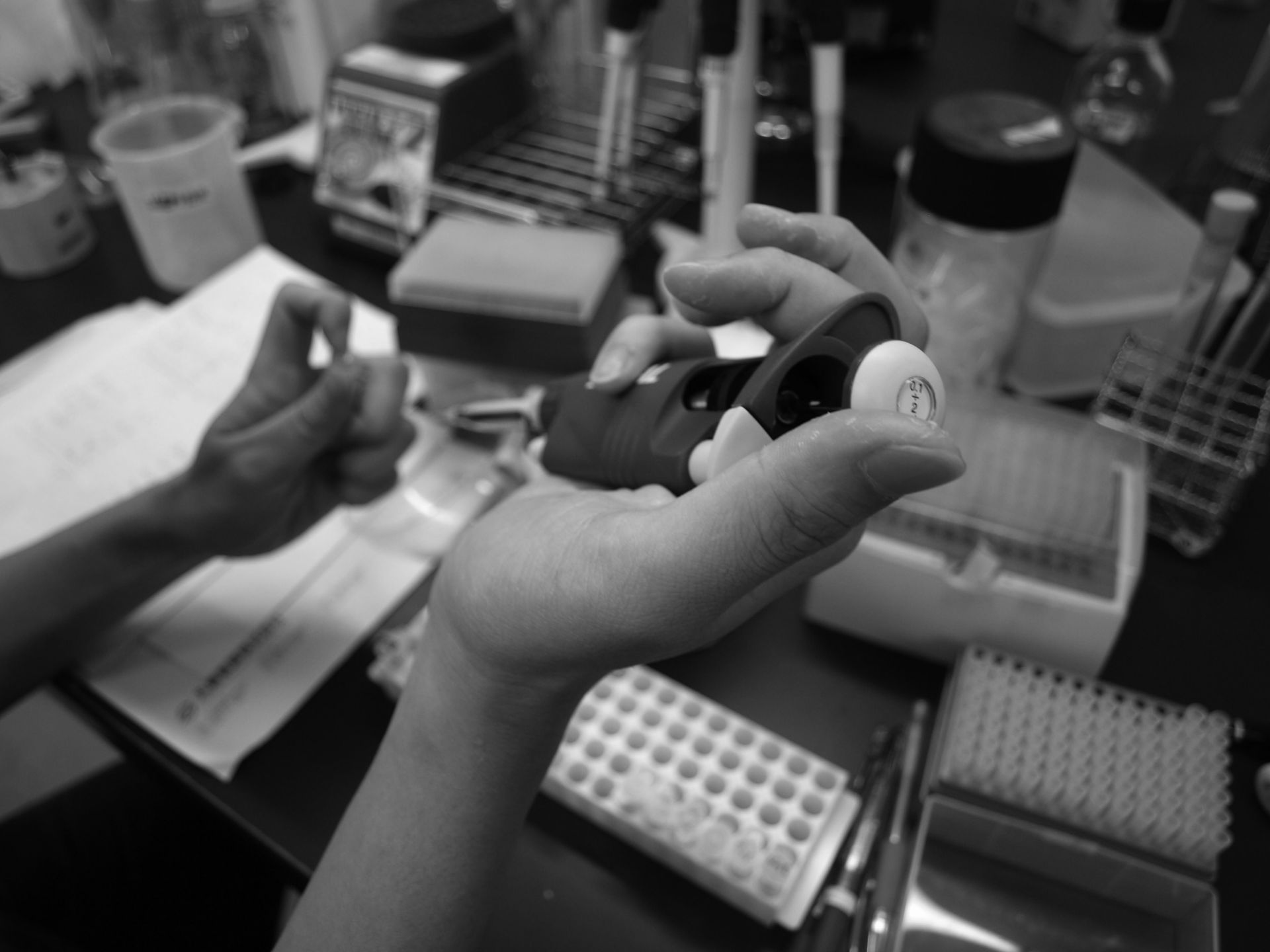


Project
Overview - E. motion
As a part of Policy & Practices project, we conducted a survey on people’s attitudes toward genetic engineering. The results showed that the general public does not feel familiar not only with genetic engineering but also with science. So we designed our project in order to change this for the better.
What can we do to make science more appealing to everyone? One of the solutions for us was to harmonize science with arts. You may say that science is incompatible with arts. But KIT actually constitutes of science and arts majors embodying a fusion of them, as its philosophy posits "Wisdom, Beauty and Technology." Our project fused science and arts in a KIT way. With the help of E. coli, S. cerevisiae, D. melanogaster and C. elegans, we decided to use not only color but also scent and MOTION, as the new elements to enliven the artwork livelier. Please enjoy it.
E. motion=E. coli+Motion

Gallery
Conventional BioArt
These drawings depict the best things about autumn in Japan with E. coli Pen. Ink of the E. coli Pen is made from E. coli cells expressing fluorescent proteins.



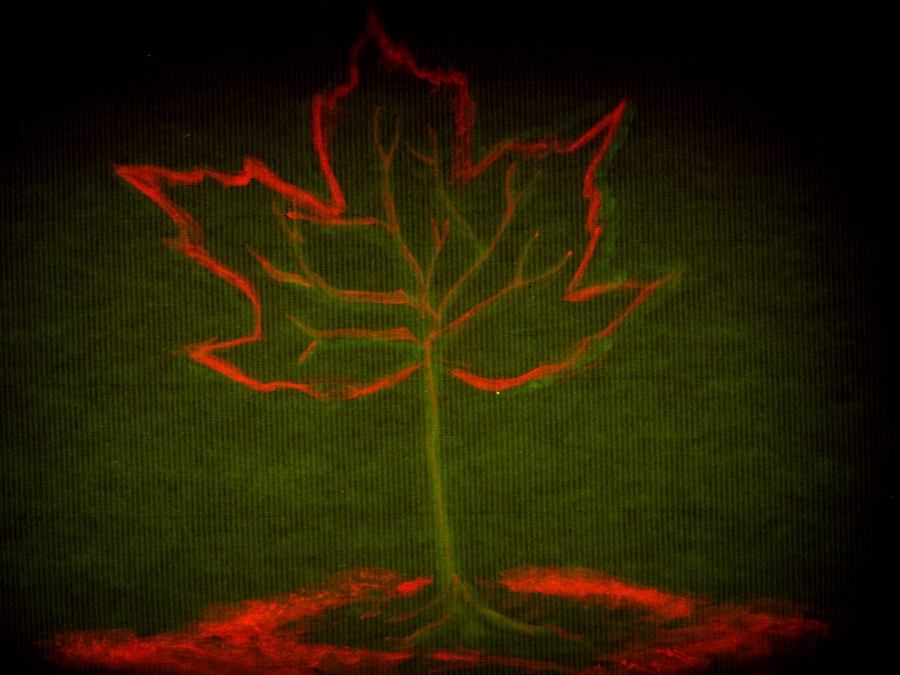
New Generation BioArt
Glowing Trails of Drosophila
E. coli producing limonene and fluorescent proteins were used. Limonene controls the behavior of Drosophila.

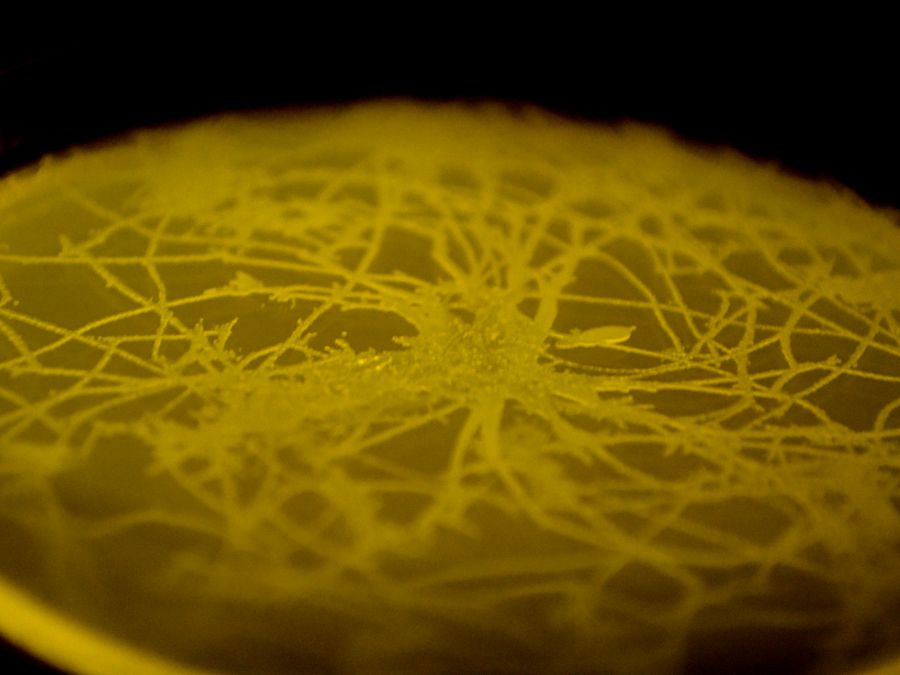

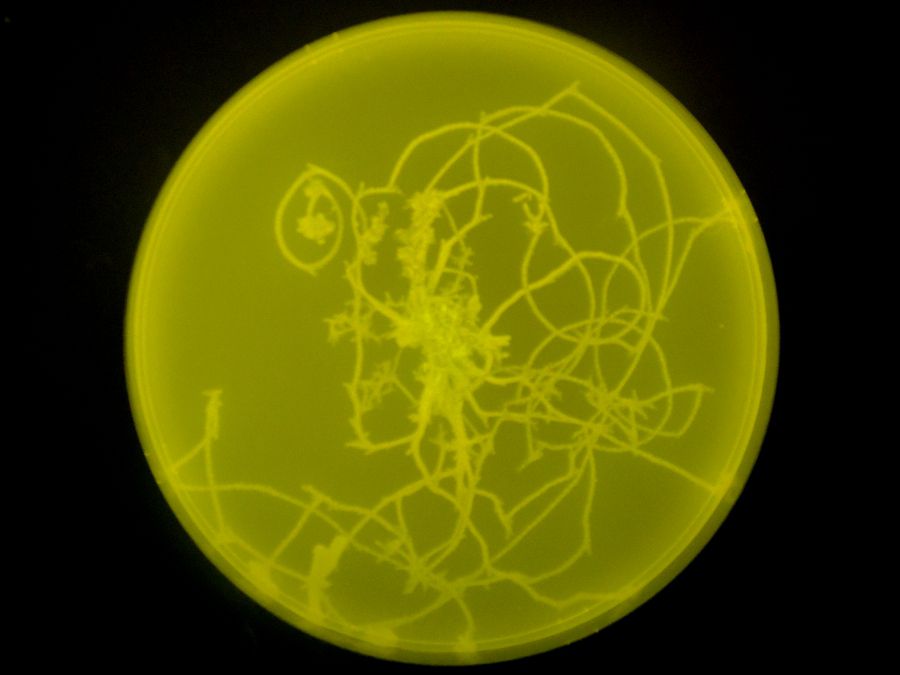
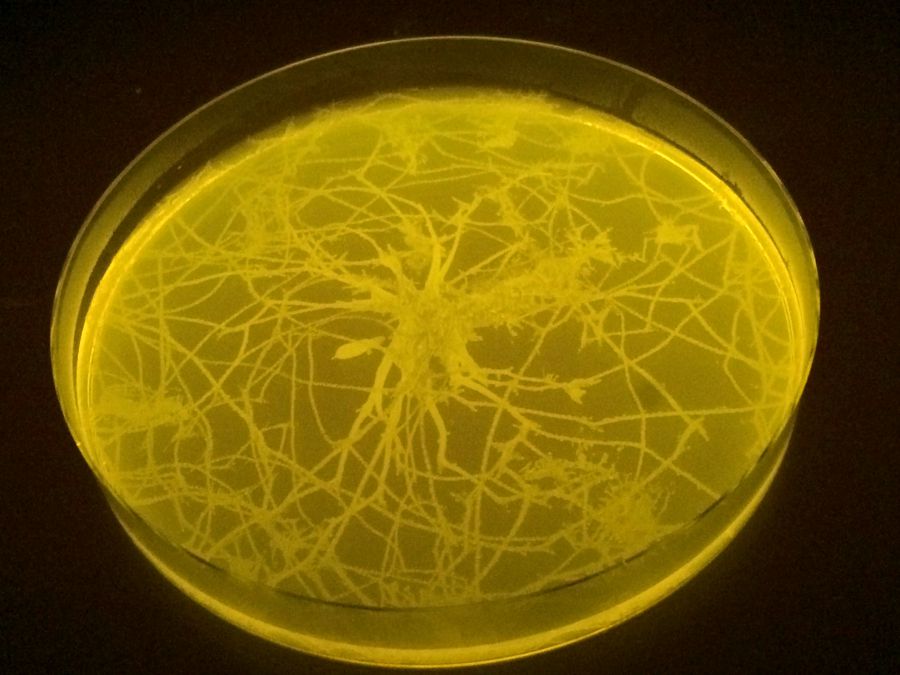
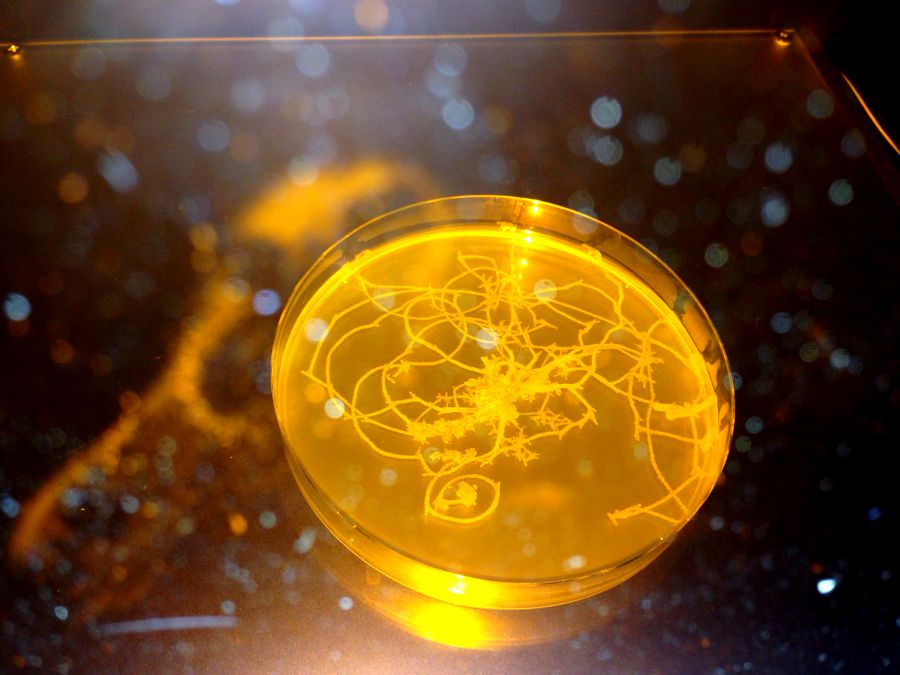
C. elegans and the Feast
C. elegans that were fed E. coli expressing GFP.


Do You Like Limonene?
Short Films
E.motion: Dawn of the New Generation BioArt
How to make basic BioArt
KIT-Kyoto made an introductory video "How to make basic BioArt." We hope that more people can find genetic engineering appealing. With a little bit of labware, you can make BioArt!
 "
"

